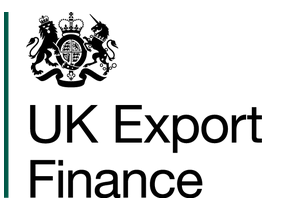It seems a long time ago that ~UK Export Finance^ (UKEF) was “labouring in obscurity” after years in decline. It had exited the short-term market in 1991 and by the mid-2000s was restricted to no more than a couple dozen niche participants, such as ~Rolls Royce^, ~Airbus^, and the occasional big defence contract.
But where did this decline stem from?
"It was part of a trend by successive governments – Labour and Conservative – that said ‘we don’t really need export credit agencies (ECAs)’. There is a line of argument that claims that ECAs must be a subsidy and that subsidies distort the free market,” says David Godfrey, the former ~Lloyds^, ~Swiss Re^ and ~JP Morgan^ banker who was appointed chief executive officer at UKEF in September 2013.
As a consequence, UKEF struggled through much of the 1990s and 2000s. “We were really an organisation that was shrinking. We ended up in 2000 as probably the smallest of the ECAs.
So what changed?
"The credit crisis; people realised that financial markets, capital markets cannot do everything. The private sector withdrew a lot of capacity for trade credit and political risk. And the banks had enormous issues with balance sheets and liquidity, so a lot of the support in the banking sector – particularly for big project finance – withdrew.”
A space had opened up for ECAs but UKEF wasn’t exactly primed to move into it. The days of decline meant that UKEF’s ability to “use the levers of government intervention” had all but disappeared. A lack of capacity prevented ~UKEF^ from moving quickly back into the short-term cover market.
Godfrey refers – somewhat admiringly – to French ECA and insurer Coface’s ability during the same period to transition efficiently from the private account to the public account using the same mechanism and instruments. He would like to see UKEF adapt to be more in this mould: nimble, responsive, flexible.
“We understood then that markets are cyclical: they do not go up forever and they do not go down forever. Having a ‘throughthe-cycle-ECA’ is really important. That is the single biggest change that has occurred over the last 18 months.
“There are times when it is going to be very busy, very active, and times when it is not going to be. The key is to have an ECA that is capable of operating through these cycles and therefore it needs to be nimble, needs to be agile, and it needs to be responsive to the market.”

UKEF back in the short-term space – with new products
UKEF’s affiliation with only a small number of participants in the market meant that it did not have a good antenna for reading the market. One of the ways it is looking to correct this is by getting back into the short-term business, which it did in 2011 after a two decade absence.
“We are now dealing with more than 130 exporters in a year. It might not sound a lot but when you think that in the dark days we were supporting less than 20 companies, you can see the huge increase.”
UKEF is hoping to accelerate this increase by broadening its reach and range of products.
“We have 18 export finance advisors in the UK, who are working with exporters and banks locally, with colleagues in UK Trade & Investment (UKTI), Local Enterprise Partnerships and the Chamber of Commerce to get the message out. And most recently we’ve worked on our lending capability in two forms: the export refinance facility (ERF) and the direct lending facility.
“Both these products were responses to dislocations in the banks. Direct lending was launched as a pilot in September last year as a response to a perceived shortage in funding for buyer credit.”
The conditions for access, however, were strict, the rate was expensive, and it was in any case going to expire in 2017. In other words, it lacked appeal to bankers.
“When I joined in September I felt – and the Treasury agreed – that it could be a much more proactive instrument. It wasn’t designed in the correct way for that, however, so we asked KPMG to do some analysis for us with a view to improving it. They talked to the British Exporters Association (Bexa), big businesses, small businesses, they talked to banks and as a result of that feedback we completely redesigned the scheme. ”
The changes include increasing the facility capacity to £3 billion ($5 billion), lowering the interest rate, and making the scheme permanent. The competitive pricing could bring UKEF into competition with commercial banks, but Godfrey says that is not UKEF’s aim.
“We still do not want to compete with the private sector, so if a bank says ‘yes we will do it’, we are not going to go in and say ‘we can do it cheaper’. But if that bank says that they cannot do it, then we can step in.
“But even then, we are also trying to give the banks an incentive to stay in the transaction. I am not opposed to us tranching the facilities so that the banks take the shorter-term maturities and we take the longer-term maturities, for example.”
UKEF has received a number of enquiries about the facility, according to Godfrey, and expects to have a “significant” uptake in the next 12-18 months – with the first by the end of this year.
Reaching out to stakeholders
Godfrey acknowledges that UKEF has much to do to increase its engagement with key stakeholders, beginning with current and prospective clients.
“Our clients tend to be members of local chambers of commerce or Bexa, it only takes one of them to say ‘I did a deal with UKEF and my God they have changed – they responded quickly, I got bond support in partnership with my bank’ and so on for word to quickly spread and others to pickup the phone and give us a call.
“Spreading the word like that is really important for us. For ten years marketing was not a priority for us – we waited for companies to come to us. That is slowly changing now.”
Clients are not the only stake holders UKEF are targeting. Bexa and UKEF have had a somewhat chequered relationship in the past, but Godfrey senses this is changing.
“Bexa has been critical in the past that we have been slow to respond and that our product suite has not matched that of other ECAs. But if you look at their most recent pronouncement following the budget they are actually now saying that we have a better range of products than many of the other ECAs.
“That is one thing to say on paper, but Bexa will be critical of us if we do not deliver. Their concern now is not that we do not have the products, it is whether we have the people to deliver these products.”
ECAs and project finance
Last year UKEF took a significant role in the huge $12.5 billion lending arrangement for the joint venture between Dow and Saudi Aramco, the Sadara Petrochemical Plant. Half a dozen ECAs participated in total, providing $8.5 billion in financing.
“This is part and parcel of the shift in the banking market, where the availability of largescale longterm funding for these big infrastructure projects around the world is limited.
“In 2009, ECA support for project finance was $10 billion. Last year it was $30 billion (according to research by Baker & McKenzie). This is because banks now find it very difficult to put up large amounts of the long-dated types of financing needed for projects, which can be 10, 12, 15 years. They are just not interested in those kinds of maturities.”
This has allowed ECAs to step in to the space in two ways – pure cover and direct lending.
“We have seen a massive increase in the balance sheet of US Ex-Im [the Export-Import Bank of the United States] who are out there providing very large amounts of direct funding.”
Was this a temporary development in light of the economic crisis or will it continue?
“I think it will continue. We are looking at a number of large projects right now, where ECA support will be viewed as positive. Banks are going to large sponsors and looking at how much projects cost and then saying that in order to secure you the most competitive funding, we are going to look at where the ECAs have the best support.”
By having competitive funding, UKEF hopes to open up opportunities for British exporters, in the same way that US Ex-Im’s product offering creates opportunities for Halliburton or K-Sure’s creates opportunities for Hyundai.
“We want to produce a competitive funding package – part of which is going to be ECA direct lending, part of which is going to be lending by the banks and some of it may well be capital markets refinancing.
“This is why we have introduced the ERF, because we think that allows banks to provide and structure long-term financing, 12-15 years, safe in the knowledge that they will only have to provide the loans for four years.
“If the loan cannot be refinanced in the capital markets or through some other mechanism they will be able to put that loan to us and they will have an absolute full-faith guarantee on day one that UKEF will take that loan out at the end of year four.”
Godfrey concedes that UKEF refinancing rates, if needed, will be “very expensive” – Libor plus 175 basis points – but looked at on a case-by-case basis.
“Unlike with the direct lending, where we expect to be hit because we are making a loan, on ERF we expect not to be hit. It is a mechanism that allows banks to have a four-year loan but structure a 12-year transaction. We have tried to price it in such a way that with a 95% certainty we will not have to take that loan out.”
The task is to achieve a balance in pricing between it not being so cheap to the point that borrowers think it is so attractive they need not bother refinancing it with the capital markets, but not so expensive to the point that the borrower feels it is not worth taking the risk with it to begin with.
“We accept we are going to have to work through this case-bycase but we want a situation where the borrower, the bank and UKEF are incentivised to place these transactions into increasingly sophisticated capital markets.” Despite the greater involvement of ECAs, there are a number of roles for banks to play within project financings.
“Banks are good at structuring project financing and they understand drawdown and how to implement revolving credit facilities and all of these sorts of things. All of which the capital markets hate; they like an Airbus transaction because of the day-1 bullet drawdown. It’s a swifter, more simple transaction.” For Godfrey, there is room – and a role – for all players.
Competition and collaboration between ECAs
While there have been a number of transactions in which ECAs have clubbed together to provide a comprehensive funding package, ECAs ultimately have a mandate to promote their own domestic exporters. Is the relationship between UKEF and other ECAs predominantly one of competition or collaboration?
“In many deals there is room for more than one ECA in a transaction, particularly because of the size of some of these transactions and the way large projects are sourced. So whether you do co-insurance or re-insurance, there is a lot of scope for ECAs at the point when the deals are won to work together.”
Accordingly, UKEF have attempted to sign or revive memoranda of understanding (MoU) with other ECAs. It recently signed one with K-Sure as well as revived a previous agreement with Sinosure.
“These MoUs essentially say that in third countries, we will work collaboratively.For example in the case of K-Sure, it’s a Korean prime contractor, we will try to secure as much first tier and second tier supply as we can for UK companies.”
The difficulty of levelling the playing field
Has the ideal of levelling the playing field had to subside in recent years? “We are still committed to working through multilateral fora to maintain a level playing field and we also need to be mindful of the increasing competition that is coming from non-OECD countries.
“The challenge and the key is getting the OECD to agree on aspects like common approaches and Commercial Interest Reference Rate (CIRR) tariffs, for instance. Then through that common approach – perhaps at the political level – trying to engage non-OECD counterparts, particularly China, into discussions to say that actually this benefits all and avoids a race to the bottom. It is not an easy argument.”
Godfrey is more optimistic about the progress in levelling the playing field among OECD countries.
“I think we do a good job of it. We have working groups; common approaches; the work that has been done on pricing has been enormously beneficial; we have the airline sector understanding; and now we have pricing for sovereigns and corporates across everything apart from category zero market.
“That has all made a big difference. I think the tension we used to get over pricing and how it is set has largely gone. The way we do our environmental categorisation and transparency around that has been a big step forward. There are always areas of different points of view but the OECD as a forum has done a lot of good over the years.
“As you get more countries, non-OECD countries, with big exporting aspirations and capabilities, it does become more challenging.”
Balancing politics and business
UKEF’s offices moved late last year from Docklands to Westminster. Is this symbolic of a repositioning of UKEF from a business organisation to a political one?
“My personal view is that the role of CEO of UKEF has to be run by a business person. There are so many complexities to our risk, and with these new products, you have to understand the difference between pure cover and direct lending and ERF and so on. If you do not have a grasp of that, it would be very difficult to run this business.
“At the same time you need to understand the political dimension in which you are operating. Two days after we were given the go-ahead for the changes in direct lending, we were getting calls from people asking ‘so how much have you done so far?’
“It is quite difficult for someone coming in from the private sector to understand how Whitehall in particular works. The move has undoubtedly helped. Previously as far as the government was concerned it was a little bit a case of ‘out of sight, out of mind’. Bringing us into Whitehall, we are one floor above Treasury, so we have a lot of interaction with them.
“Being seen to be a closer part of government is a huge benefit, but still the task for us is awareness, awareness, awareness.”
UKEF in five years’ time
UKEF is a very different organisation today to the one it was five years ago, but where does David Godfrey envisage it will be another five years from now?
“I hope that in five years’ time UKEF will be viewed as one of the most competitive and responsive ECAs in Europe and one of the most responsive in the OECD. I hope that people will know what we offer and will be confident that they will get a timely response for us.”
Despite its push, there is no doubt that it will nonetheless be impossible for UKEF to provide cover or funding to all who apply for it.
“Our attitude is to never say ‘no’, but to say ‘yes if...’. The ‘if’ may not be deliverable, but at least we will give applicants something that will allow them to go back with a potential solution. I also want to see us attract top people. When you are in decline and labouring in obscurity, it’s tough to attract the top people. Now things are different.”
There is certainly optimism in the air as far as UKEF is concerned, but only time will tell whether the new mood ushers in a period of growth and success over the next few years.
The biggest challenge, perhaps, is recruiting the personnel and developing the infrastructure to reflect the organisation’s growing ambition.







